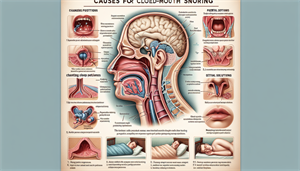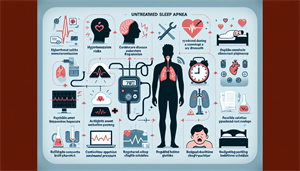Are you waking up with back pain and wondering, “can sleep apnea cause back pain?”
Surprisingly, these two health issues might be connected. Sleep apnea, known for disrupting sleep through breathing difficulties, may also play a role in back pain due to systemic inflammation and increased stress on the body. This article delves into the possible links between sleep apnea and back pain to help you understand and address these interconnected health challenges.
Key Takeaways
Sleep apnea and chronic back pain are closely linked; poor sleep quality can exacerbate back pain due to increased inflammation and reduced effectiveness of natural opioids, while sleep apnea can lead to systemic inflammation, impacting the spine and contributing to conditions like disc degeneration. Poor sleep, such as that experienced by individuals with sleep apnea, can negatively impact spinal health by hampering the spine’s natural decompression and rehydration processes, and by straining the spinal column. Treating sleep apnea may indirectly alleviate chronic back pain by reducing systemic and local inflammation and improving sleep quality, suggesting a need for an integrative treatment approach for patients suffering from both conditions.
Exploring the Relationship Between Sleep Apnea and Chronic Back Pain
Sleep apnea and chronic back pain, two conditions independently notorious for their debilitating impacts, are more interconnected than one might initially assume. Studies have found that sleep disturbances, such as those caused by sleep apnea, are frequently linked to low back pain. Poor sleep quality can intensify chronic back and neck pain, heightening inflammation and reducing the effectiveness of natural opioids, thereby amplifying pain and making it more challenging to alleviate. Sleep apnea, particularly when left untreated, has a substantial impact on systemic inflammation in the body. The recurrent cycles of hypoxia (low oxygen levels) and reoxygenation, characteristic of sleep apnea, can lead to oxidative stress, thereby exacerbating inflammation. This inflammation can impact the spine, contributing to conditions like disc degeneration, which can result in persistent back pain. Hence, treating sleep apnea, including central sleep apnea, in conjunction with managing back pain is essential due to their interconnectedness. A comprehensive approach that considers this connection can result in more effective treatment outcomes compared to addressing each condition separately.
The Impact of Restless Nights on Spinal Health
Restless nights stemming from sleep apnea and restless leg syndrome can have a detrimental effect on spinal health, leading to exacerbated back pain and making it challenging to achieve a good night’s sleep. Inadequate sleep quality has been linked to spinal health problems, including chronic low back pain, waking spinal symptoms, and poor spinal alignment. Maintaining spinal health depends heavily on sleep, as it facilitates the spine’s natural decompression process, rehydration of discs, and restoration of their optimal height. Poor sleeping posture can strain the spinal column, leading to the flattening of the natural curve. Additionally, poor sleep quality can trigger: Migraine headaches, Back pain, Neck pain, Shoulder pain, Fatigue, Poor concentration. It is important to prioritize good sleep habits and ensure that you are using a supportive mattress and pillow to maintain proper spinal alignment during a good night’s sleep. Thus, the quality of sleep directly influences the health of our spine, reaffirming the interconnectedness of sleep apnea and back pain.
How Oxygen Deprivation Affects Muscular Tension
Sleep apnea often results in oxygen deprivation due to frequent and prolonged interruptions in breathing. This leads to a decrease in oxygen levels in the bloodstream, which ultimately disrupts sleep.


